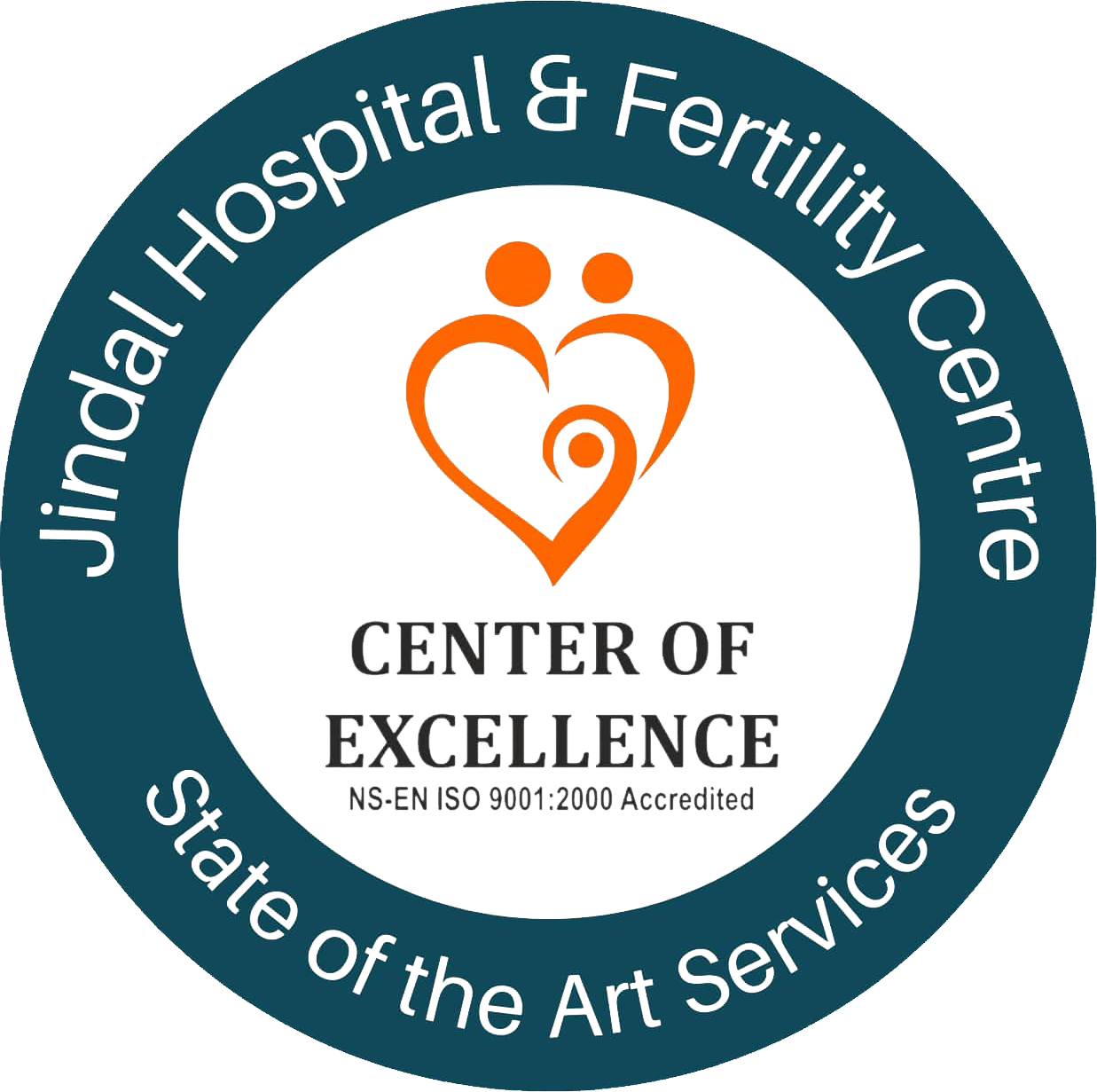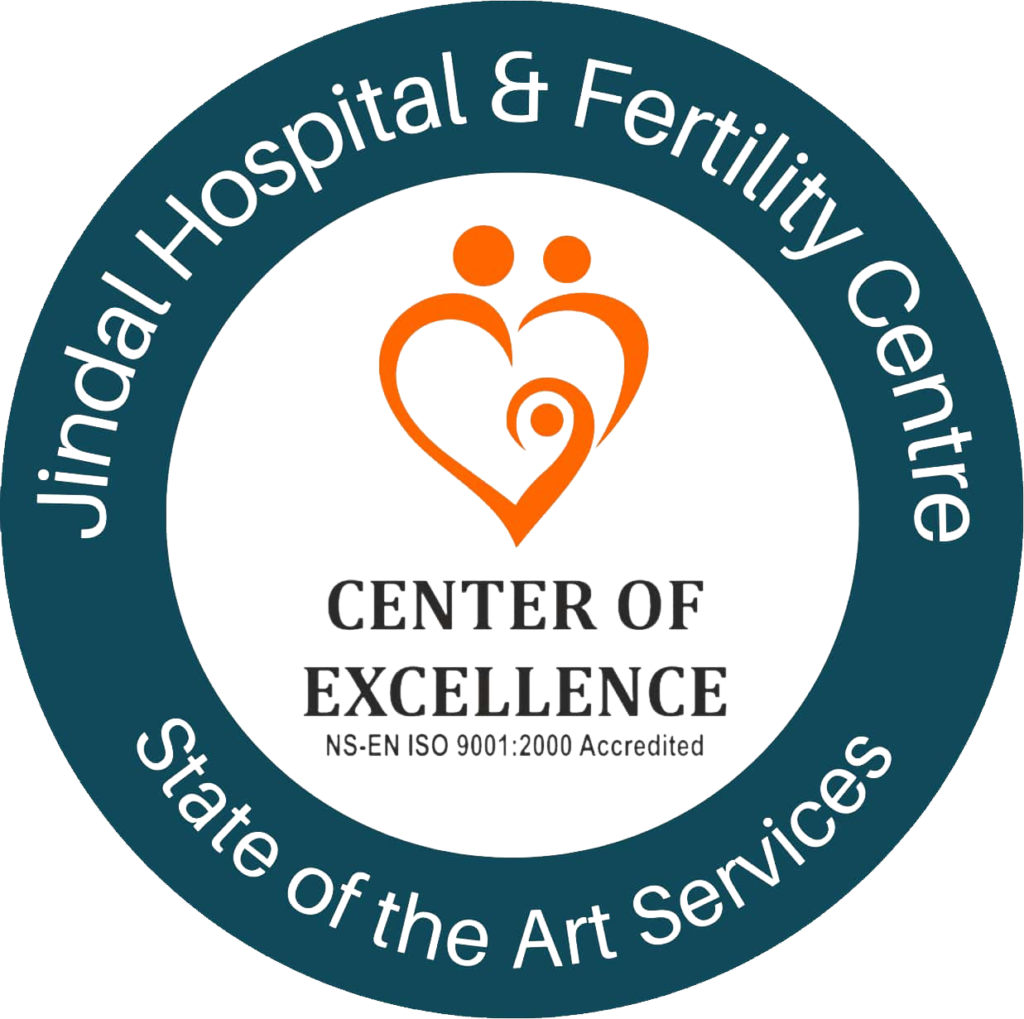
Overview
Why is it done?
Do's & Don'ts
FAQs
Overview
 Male Sexual Dysfunction: Overview and Causes at Jindal Hospital & Fertility Centre
Male Sexual Dysfunction: Overview and Causes at Jindal Hospital & Fertility Centre
Introduction
Male sexual dysfunction encompasses a range of issues that can affect a man’s ability to engage in satisfying sexual activity. At Jindal Hospital & Fertility Centre, under the expertise of Dr. Sunil Jindal, our renowned Andrologist, we provide comprehensive care for male sexual health. Here is an overview of male sexual dysfunction, its common types, and the underlying causes:
- Types of Male Sexual Dysfunction
- Erectile Dysfunction (ED)
- Description: ED, also known as impotence, is the inability to achieve or maintain an erection sufficient for sexual intercourse.
- Symptoms: Difficulty getting an erection, trouble keeping an erection firm enough for sex, reduced sexual desire.
- Impact: Can lead to stress, anxiety, and relationship issues.
- Premature Ejaculation (PE)
- Description: PE is characterized by the inability to control ejaculation, resulting in ejaculation that occurs sooner than desired.
- Symptoms: Ejaculation that happens with minimal sexual stimulation, inability to delay ejaculation.
- Impact: Often leads to frustration, embarrassment, and decreased sexual satisfaction.
- Low Libido (Hypoactive Sexual Desire Disorder)
- Description: Low libido refers to a lack of interest or desire for sexual activity.
- Symptoms: Reduced interest in sex, lack of sexual thoughts or fantasies.
- Impact: Can cause strain on relationships and feelings of inadequacy.
- Delayed Ejaculation
- Description: Delayed ejaculation is when a man has difficulty ejaculating, even with prolonged sexual stimulation.
- Symptoms: Delayed or absent ejaculation, inability to climax during intercourse.
- Impact: Can lead to frustration, anxiety, and reduced sexual satisfaction.
- Causes of Male Sexual Dysfunction
- Physical Causes
- Medical Conditions: Diabetes, heart disease, high blood pressure, and neurological disorders can affect blood flow and nerve function, leading to ED.
- Hormonal Imbalances: Low testosterone levels can contribute to low libido and erectile problems.
- Obesity: Excess weight can lead to hormonal changes and reduced blood flow, affecting sexual function.
- Prostate Problems: Conditions such as prostatitis or an enlarged prostate can impact ejaculation and erectile function.
- Medications: Certain medications, such as antidepressants, blood pressure drugs, and antihistamines, can cause sexual side effects.
- Psychological Causes
- Stress and Anxiety: Work-related stress, relationship issues, financial worries can all affect sexual desire and performance.
- Depression: Feelings of sadness, hopelessness, and low self-esteem can impact sexual function.
- Performance Anxiety: Fear of not being able to perform sexually can create a cycle of anxiety and dysfunction.
- Trauma or Past Sexual Abuse: Previous traumatic experiences can lead to psychological barriers to intimacy.
- Lifestyle Factors
- Smoking: Tobacco use can restrict blood flow to the penis, contributing to erectile problems.
- Excessive Alcohol Consumption: Alcohol can impair sexual function and decrease libido.
- Drug Abuse: Recreational drugs can have a negative impact on sexual desire and performance.
- Lack of Exercise: Sedentary lifestyles can lead to obesity and other health issues that affect sexual function.
- Expert Care at Jindal Hospital & Fertility Centre
- Comprehensive Evaluation: Thorough assessments to determine the underlying cause of sexual dysfunction.
- Personalized Treatment Plans: Tailored approaches based on individual needs, including medications, lifestyle modifications, and counseling.
- Advanced Therapies: Innovative treatments such as penile prosthesis implantation, PRP therapy, and psychosexual counseling.
- Support and Guidance: Compassionate care and support throughout the treatment process, addressing both physical and emotional aspects of sexual health.
- Conclusion
Why is it done?
Diagnosis and Treatment of Male Sexual Dysfunction at Jindal Hospital & Fertility Centre
Introduction
Male sexual dysfunction can significantly impact a man’s quality of life and intimate relationships. At Jindal Hospital & Fertility Centre, we offer comprehensive diagnosis and treatment options for various types of male sexual dysfunction. Led by our expert Andrologist, Dr. Sunil Jindal, our team is dedicated to helping men overcome these challenges and regain their sexual health. Here is an overview of our approach to diagnosing and treating male sexual dysfunction:
Introduction
Male sexual dysfunction can significantly impact a man’s quality of life and intimate relationships. At Jindal Hospital & Fertility Centre, we offer comprehensive diagnosis and treatment options for various types of male sexual dysfunction. Led by our expert Andrologist, Dr. Sunil Jindal, our team is dedicated to helping men overcome these challenges and regain their sexual health. Here is an overview of our approach to diagnosing and treating male sexual dysfunction:
- Diagnosis
- Medical History and Physical Examination
- Detailed Assessment: We begin by taking a thorough medical history to understand the patient’s symptoms, medical conditions, medications, and lifestyle factors.
- Physical Examination: A comprehensive physical exam, including examination of the genital area, blood pressure, and assessment of secondary sexual characteristics.
- Laboratory Tests
- Hormone Levels: Blood tests to measure testosterone levels and other hormone levels that may be affecting sexual function.
- Blood Sugar Levels: Testing for diabetes, as uncontrolled diabetes can lead to erectile dysfunction.
- Lipid Profile: Checking cholesterol levels, as high cholesterol can contribute to blood vessel blockages affecting erections.
- Psychological Evaluation
- Questionnaires and Interviews: Assessing psychological factors such as stress, anxiety, depression, and relationship issues that may be contributing to sexual dysfunction.
- Mental Health Assessment: Evaluating for conditions such as depression, which can impact sexual desire and performance.
- Imaging Studies
- Penile Doppler Ultrasound: A non-invasive test to assess blood flow to the penis and identify any vascular abnormalities contributing to erectile dysfunction.
- Pelvic Imaging: MRI or CT scans may be used to evaluate the pelvic region for structural abnormalities affecting sexual function.
- Treatment Options
- Medications
- Phosphodiesterase Inhibitors (PDE5 Inhibitors):
- Medications such as sildenafil (Viagra), tadalafil (Cialis), and vardenafil (Levitra) improve blood flow to the penis, aiding in achieving and maintaining erections.
- These are commonly prescribed for erectile dysfunction.
- Testosterone Replacement Therapy:
- For men with low testosterone levels, replacement therapy may improve libido, energy levels, and erectile function.
- Testosterone can be administered via injections, patches, gels, or pellets.
- Psychotherapy and Counseling
- Cognitive-Behavioral Therapy (CBT):
- Helps address negative thought patterns, anxieties, and performance pressures that may contribute to sexual dysfunction.
- Techniques to manage stress, improve communication, and enhance intimacy with partners.
- Sex Therapy:
- Focuses on improving sexual techniques, communication, and intimacy.
- Helps couples work through relationship issues and build a healthy sexual relationship.
- Lifestyle Modifications
- Healthy Diet and Exercise:
- Maintaining a healthy weight, eating a balanced diet, and regular physical activity can improve overall health and sexual function.
- Exercise improves blood flow, boosts mood, and enhances self-confidence.
- Smoking Cessation:
- Quitting smoking can improve blood circulation and reduce the risk of vascular-related erectile dysfunction.
- Limiting Alcohol and Recreational Drug Use:
- Excessive alcohol consumption and drug use can impair sexual function and libido.
- Penile Prosthesis Implantation
- For Severe Erectile Dysfunction:
- In cases where other treatments have failed, a penile prosthesis may be surgically implanted.
- Offers a permanent solution for achieving erections suitable for sexual intercourse.
- Advanced Therapies
- Platelet-Rich Plasma (PRP) Therapy
- Stimulates Tissue Regeneration:
- PRP injections promote the growth of new blood vessels and improve erectile function.
- Uses the patient’s own platelets to enhance sexual performance and sensation.
- Shockwave Therapy
- Enhances Blood Flow:
- Low-intensity shockwaves are applied to the penis, promoting the formation of new blood vessels.
- Improves erectile function and enhances sensitivity.
- Follow-up Care and Monitoring
- Regular Check-ups:
- Patients are monitored to assess the effectiveness of treatment and make adjustments as needed.
- Follow-up visits allow for addressing any new concerns or changes in symptoms.
- Support and Education:
- Our team provides ongoing support, guidance, and education on managing sexual health.
- Encourages open communication with partners to improve intimacy and sexual satisfaction.
- Conclusion
Do's & Don'ts
Do’s for Male Sexual Dysfunction:
Don’ts for Male Sexual Dysfunction:
- Seek Professional Help:
- Consult with a healthcare provider, such as a urologist or sexual health specialist, to address concerns about erectile dysfunction, premature ejaculation, or other sexual dysfunctions.
- Maintain Open Communication:
- Talk openly with your partner about your concerns and feelings regarding sexual difficulties. Effective communication can lead to mutual understanding and support.
- Undergo Medical Evaluation:
- Complete a comprehensive medical evaluation to identify any underlying health conditions contributing to sexual dysfunction, such as diabetes, heart disease, or hormonal imbalances.
- Follow Treatment Plans:
- Adhere to the treatment plan prescribed by your healthcare provider, which may include medications, lifestyle modifications, or therapies such as counseling or sexual therapy.
- Engage in Regular Physical Activity:
- Participate in regular exercise to improve overall cardiovascular health, blood flow, and physical stamina, which can positively impact sexual function.
- Eat a Balanced Diet:
- Maintain a healthy diet rich in fruits, vegetables, whole grains, lean proteins, and essential nutrients to support overall health and sexual well-being.
- Manage Stress Effectively:
- Practice stress-reducing techniques such as mindfulness, meditation, yoga, or deep breathing exercises to alleviate anxiety and promote relaxation.
- Address Relationship Issues:
- Address any relationship conflicts or emotional issues with the help of a counselor or therapist, as these factors can contribute to sexual dysfunction.
- Educate Yourself:
- Learn about male sexual health, common causes of sexual dysfunction, and available treatment options to make informed decisions about your care.
- Consider Couples Therapy:
- If sexual dysfunction is affecting your relationship, consider attending couples therapy or sex therapy sessions together to improve communication and intimacy.
Don’ts for Male Sexual Dysfunction:
- Don’t Ignore Symptoms:
- Avoid ignoring signs of sexual dysfunction such as erectile difficulties, low libido, or premature ejaculation. Early intervention can lead to more effective treatment.
- Avoid Self-Medication:
- Refrain from using over-the-counter supplements, herbal remedies, or medications without consulting a healthcare provider. These may interact with other medications or worsen the condition.
- Don’t Overindulge in Alcohol:
- Limit alcohol consumption, as excessive drinking can impair sexual performance, decrease libido, and contribute to erectile dysfunction.
- Avoid Smoking and Drug Use:
- Quit smoking and avoid recreational drug use, as they can negatively impact blood flow, hormone levels, and overall sexual health.
- Don’t Skip Medications:
- If prescribed medications for sexual dysfunction, such as phosphodiesterase inhibitors (e.g., Viagra, Cialis), take them as directed and do not skip doses.
- Avoid Stressful Situations:
- Minimize exposure to stressful situations or triggers that may worsen anxiety or performance pressure related to sexual activity.
- Don’t Rely Solely on Medications:
- While medications can be effective, don’t rely solely on them. Incorporate lifestyle changes, stress management techniques, and other therapies for comprehensive treatment.
- Avoid High-Fat, Processed Foods:
- Limit consumption of high-fat, processed, and sugary foods, as they can contribute to obesity, cardiovascular issues, and erectile dysfunction.
- Don’t Hesitate to Discuss Concerns:
- Don’t feel embarrassed or ashamed to discuss sexual concerns with your healthcare provider. They are trained professionals who can offer support and solutions.
- Avoid Comparing Yourself to Others:
- Refrain from comparing your sexual performance or experiences to others. Each individual’s sexual health is unique, and seeking help is a positive step towards improvement.
FAQs

